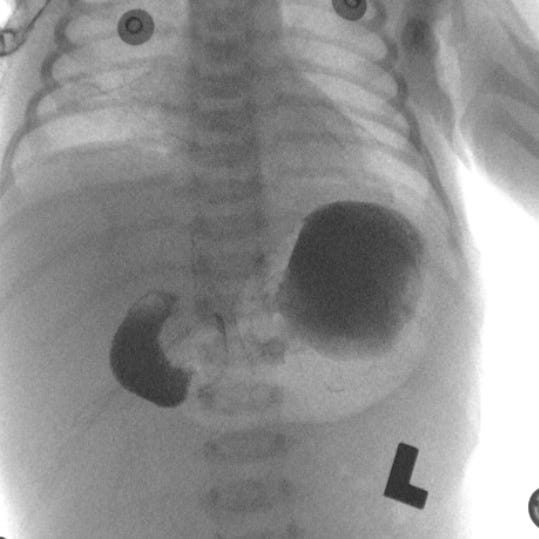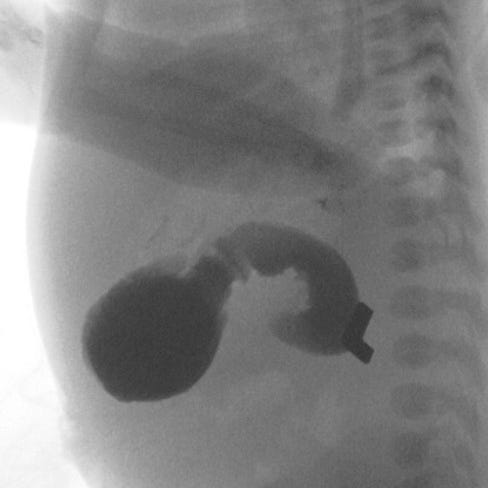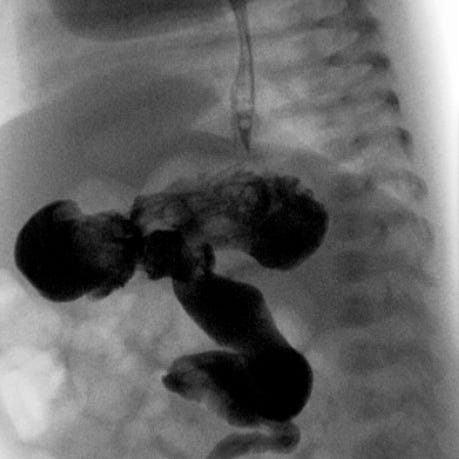Midgut volvulus
Pediatrics
Midgut volvulus is due to failure of normal small-bowel fixation (malrotation) or to congenital fibrous bands that permit twisting of the proximal small bowel about its mesentery with consequent bowel ischemia and necrosis. Most cases occur in the first week of life, and children present with bilious vomiting and abdominal distention.
Imaging diagnosis is by upper gastrointestinal examination. Complete duodenal or proximal jejunal obstruction will be evident, sometimes with “beaking” at the point of obstruction
Midgut volvulus. Air-filled, mildly distended stomach with paucity of distal bowel gas.


Upper gastrointestinal examination. Contrast-filled distal duodenum tapers to a “beak.”
Postrepair study shows passage of contrast to small bowel.
Management is surgical, with lysis of any congenital adhesive bands (if present) and detorsion of any twisted bowel. Complications include bowel necrosis and septicemia. Short gut syndrome and malabsorption may result if extensive bowel resection is necessary.



